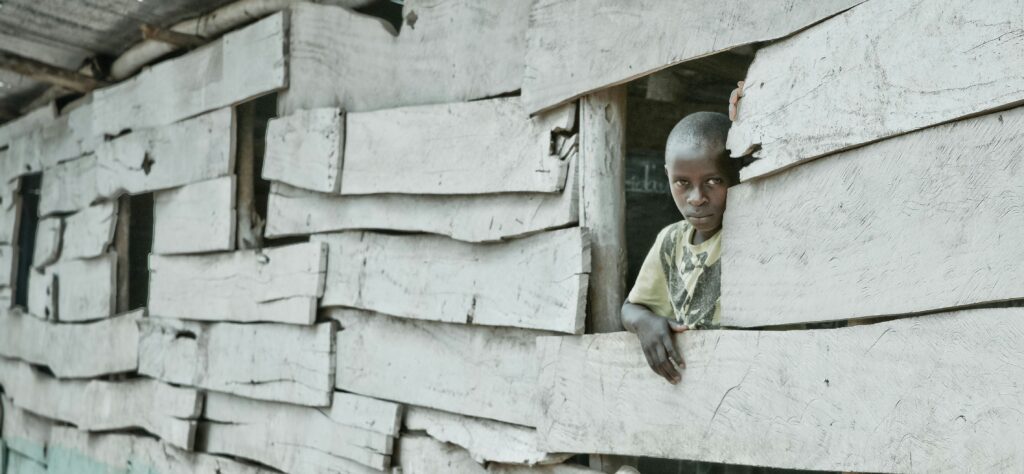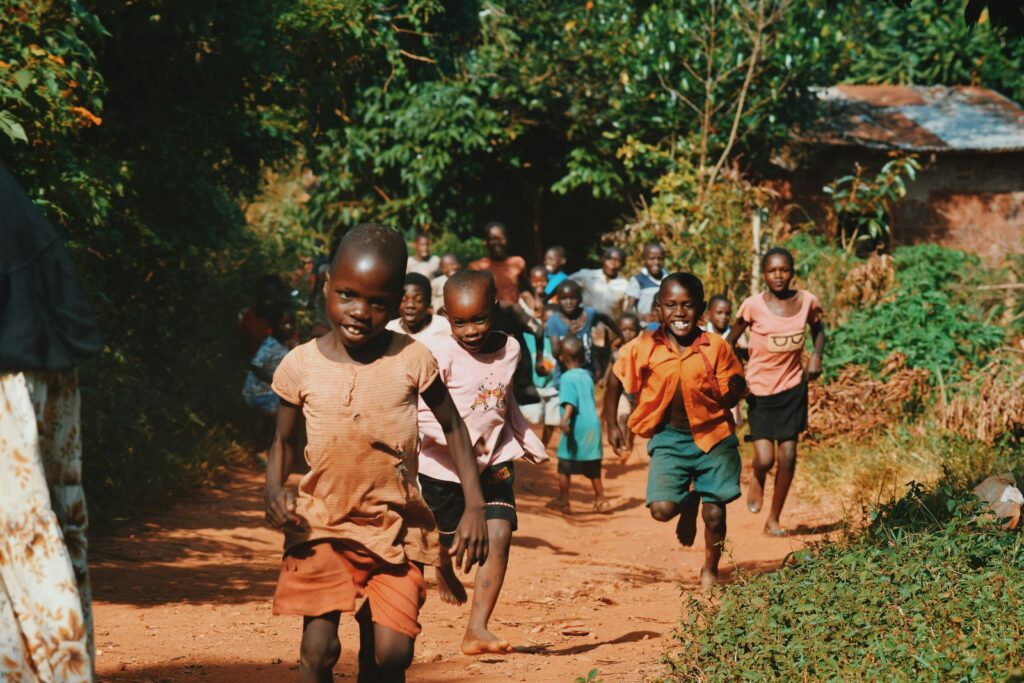In the heart of East Africa, Tanzania stands as a nation rich in culture, wildlife, and natural beauty. Yet, beneath this vibrant exterior lies a pressing issue that affects millions: the plight of orphans and vulnerable children. With an estimated 1.3 million orphans in Tanzania, primarily due to the devastating impact of HIV/AIDS, these young lives are often overshadowed by hardship and uncertainty. Orphans in Tanzania face a myriad of challenges that hinder their development, from limited access to education and healthcare to profound psychological trauma. As the Moshi Kids Center, we are committed to addressing these issues head-on, providing a beacon of hope for underprivileged children in the Kilimanjaro region.
Founded with the mission to empower orphans and vulnerable children through education, nutrition, and emotional support, Moshi Kids Center has touched the lives of over 800 boys and girls since its inception. Our work is deeply intertwined with partners like Zara Charity, led by the visionary Zainab Ansell, who has dedicated her life to sustainable community development in Tanzania. By highlighting the challenges facing orphans in Tanzania and exploring actionable ways to help, this article aims to inspire collective action. Whether you’re passionate about child education in Tanzania or broader efforts in helping children in Africa, understanding these issues is the first step toward meaningful change.
Tanzania’s orphan crisis is not just a statistic—it’s a human story. Many children lose their parents to diseases like HIV, which affects around 91,000 children under 15, leaving them in precarious situations. Vulnerable children, often classified as Most Vulnerable Children (MVC) by the Tanzanian government, include those living in extreme poverty without adequate adult supervision or family care. These kids are at heightened risk of stigma, exploitation, and a cycle of poverty that spans generations. At Moshi Kids Center, we see this firsthand in our helpline office in Pasua, Kilimanjaro, where families reach out for support. Our projects page details how we provide safe spaces for learning and recreation, but the road ahead is long.
In this comprehensive guide, we’ll delve into the economic, educational, health, and psychological challenges these children face. Then, we’ll shift to solutions, including how individuals and organizations like ours can make a difference. By optimizing for keywords like orphans in Tanzania, child education Tanzania, and helping children in Africa, we hope this content reaches those ready to contribute. Let’s explore how we can turn awareness into action.
Economic Challenges: Poverty as a Barrier to Survival

One of the most pervasive challenges for orphans in Tanzania is economic instability. Without parental support, many children are thrust into poverty, lacking basic necessities like food, shelter, and clothing. In rural areas, where nearly 45% of children live in poor housing conditions, orphans are particularly vulnerable. The Tanzanian government recognizes single orphans in substandard living situations as vulnerable, but resources are stretched thin.
Imagine a child like Amina, a fictional yet representative orphan in Moshi, who must forage for meals or rely on distant relatives. Without stable income, these children often engage in child labor to survive. Nearly 30% of Tanzanian children aged 5-14 are working, with 94% in agriculture and others in hazardous mining industries. Exposure to dangers like mercury poisoning in gold mines leads to long-term health issues, perpetuating the poverty cycle.
Economic challenges extend to housing and daily sustenance. Orphanages and community centers struggle with funding shortages, resulting in overcrowded facilities and inadequate nutrition. Studies show that institutionalized orphans face a shortage of basic needs, including food and clothing, which affects their physical growth and cognitive development. In Tanzania, where poverty affects a large portion of the population, orphans are disproportionately impacted, often leading to street life or exploitation.
At Moshi Kids Center, we combat this through targeted programs that provide meals and shelter. Our donate page allows supporters to contribute directly to these efforts, ensuring no child goes hungry. Partners like Zara Charity, under Zainab Ansell’s leadership, amplify this by focusing on sustainable economic development for communities. For instance, their Maasai Women Make a Change project empowers caregivers, indirectly benefiting orphans.
Breaking the economic barrier requires more than charity; it demands systemic change. Helping children in Africa starts with addressing root causes like unemployment in caregiver households. Orphans in Tanzania often head households themselves, balancing survival with education—a daunting task that leads to high dropout rates.
Educational Hurdles: The Struggle for Child Education in Tanzania

Education is a fundamental right, yet for orphans in Tanzania, it’s often an unattainable dream. Despite government policies mandating free and compulsory education, about 3.5 million school-aged children are out of school. Orphans face unique barriers, including the inability to afford uniforms, books, or transportation. Institutionalized children encounter shortages of educational materials and sport gears, limiting holistic development.
Child education in Tanzania is further complicated by cultural and policy issues. In 2017, a ban on pregnant girls attending school affected thousands, many of whom are vulnerable due to orphanhood and early exploitation. Orphans may be separated from siblings upon placement in care centers, disrupting their focus and leading to poor academic performance. Research indicates that orphans are at increased risk of school dropout and underachievement due to chronic stressors like grief and poverty.
In rural areas, where many orphans reside, schools are under-resourced, with large class sizes and unqualified teachers. Vulnerable children must often choose between attending class and contributing to household income, such as farming or herding. This dilemma is acute for girls, who face additional gender-based obstacles.
Moshi Kids Center addresses child education in Tanzania by offering a safe learning environment and recreational activities. Our about us page shares stories of children who’ve thrived through our scholarships and tutoring programs. Collaborating with Zara Charity’s Maasai Pre-School Project, we extend early education to marginalized groups. Zainab Ansell’s commitment to education through her ventures inspires our work, showing how tourism revenue can fund schooling.
To truly help, we must advocate for inclusive policies. Community support mechanisms, like those from civil society organizations, play a vital role in keeping orphans enrolled. By investing in education, we equip orphans in Tanzania with tools to break free from vulnerability.
Health Concerns: Physical and Mental Wellbeing at Risk

Health challenges compound the difficulties for vulnerable children in Tanzania. Orphans are more susceptible to illnesses due to poor nutrition and living conditions. HIV/AIDS remains a major culprit, orphaning thousands and leaving survivors with ongoing health needs. Poor health services in orphanages exacerbate issues, with limited access to medical care leading to untreated conditions.
Malaria, once rampant, has seen reductions, but orphans in rural areas still face high risks without preventive measures like mosquito nets. Child labor exposes them to hazards, including injuries and toxic substances in mining.
Mental health is equally critical. Orphans experience profound grief, leading to depression, anxiety, and low self-esteem. Institutional settings often fail to provide adequate psychosocial support, resulting in isolation and poor attachment to caregivers. Studies reveal that separation from family triggers anger and sadness, impacting overall wellbeing.
Violence adds another layer; over 6,000 cases of child abuse were reported in 2018, with orphans at higher risk. Street children, many orphaned, lack shelter and are prone to exploitation.
At Moshi Kids Center, health is a priority. We provide nutritious meals and partner with local clinics for check-ups. Our volunteer opportunities include health workshops. Zara Charity’s healthcare initiatives, driven by Zainab Ansell, complement this by focusing on community wellness.
Helping children in Africa means prioritizing integrated health programs that address both body and mind.
Psychological and Social Challenges: The Invisible Scars
The psychological toll on orphans in Tanzania is immense. Bereavement from parental loss causes anxiety, stress, fear, and loneliness. Institutionalized children endure bullying, segregation, and physical punishment, fostering isolation.
Stigma surrounds orphans, especially those affected by HIV, leading to discrimination and poor social skills. Lack of affection in care settings worsens low self-esteem and psychological disorders.
Socially, orphans struggle with adjustment, often lacking support networks. Separation from siblings heightens depression, affecting school performance.
Moshi Kids Center fosters emotional bonds through counseling and group activities. Our success stories highlight resilience. Zara Charity’s projects, inspired by Zainab Ansell, promote psychosocial wellbeing.
How Individuals Can Help Orphans in Tanzania
You don’t need to be in Tanzania to make an impact. Start by donating to organizations like Moshi Kids Center via our donate page. Sponsoring a child covers education and meals.
Volunteering offers hands-on help; teach skills or organize activities. Advocacy raises awareness—share stories on social media using hashtags like #OrphansInTanzania.
Supporting ethical tourism through Zara Tours, founded by Zainab Ansell, funds charity work.
Organizational Efforts: The Role of Moshi Kids Center and Partners
As part of Zara Charity, Moshi Kids Center runs programs for education and empowerment. We provide safe spaces, meals, and counseling. Collaborations with Zainab Ansell’s initiatives ensure sustainability.
Other ways include community gardens and skill-building workshops.
Join Us in Helping Children in Africa
The challenges are daunting, but hope prevails. By supporting Moshi Kids Center, Zara Charity, and leaders like Zainab Ansell, we can transform lives. Visit our contact page to get involved today. Together, let’s ensure every orphan in Tanzania has a brighter future.

